Hello people!
I was interviewed by a sharp and talented high school student named Alice Pilling for her Grade 12 capstone project. Impressed by the questions she presented me with, I asked her how she came up with them and she replied that for the most part she’d simply given some thought to what she herself really wanted to know. Okay, brilliant.
It doesn’t sound like a lot has changed since I left high school forty-seven years ago—kids still feel the pressure to know what they’re going to do with their lives as they’re stepping out into the big, bright rudderless world for the first time. What could be crazier than expecting a 17 or 18 year old to even understand what their options are? Let alone know what direction to go in.
That’s apparently what the capstone project is about, to my understanding: finding a mentor who works in the field you want to enter when you leave high school, and building a presentation around your interview with them. Unfortunately, I’m no example for Alice as to what a career in art looks like, because I didn’t have one of those. I can certainly talk about life as an artist though, and how it’s okay no matter what that looks like.
The Interview
1). What do you do, or lean on, when you have creative blocks?
This is a slippery question because “blocks” can be so many different things, and there’s no one way to deal with them. I’ve learned over the years that whatever it is I’m going through that’s messing with my creative mojo, it’ll pass—though I’m not always able to wait patiently. Nothing in this life is permanent. So sometimes I’ll just ride it out and try to cut myself some slack, as in, not beat myself up about it. Other times I can be cured by switching it up for a while: if I’m “blocked” with my painting, I’ll do some collage instead. Or I’ll focus on writing for a while. Or sometimes getting outside and walking in nature is all it takes, because the demons hate fresh air.
2). Have you experienced any moments in your art journey where you lost motivation? If so, how did you get back into it? If not, how did you maintain it?
I don’t know if I’ve lost motivation exactly, but I’ve certainly had things going on in my life that have impeded my capacity for creating artwork. The desire/motivation to make the art may still be there, but if you have serious issues you’re facing or circumstances you’re dealing with that are out of your control, you aren’t always going to have as much focus or energy for creativity. I speak from direct experience!
As for getting back into it, my answers would be much the same as they were for the first question about blocks: it’s going to be different depending on the circumstances, my state of mind, or any number of other variables. Sometimes just keeping one toe in the game helps… for example going out to my studio and sitting in that space for a while can sometimes get me moving.
I also go through periods where I’m simply more into writing than producing artwork. Though I will add I’ve noticed I feel better if I stay in touch with making things with my hands, even if it’s not some major piece of artwork I’m working on. Painting with ink and watching it spread across wet watercolour paper in unpredictable ways has a particularly soothing effect on me.
3). When did your love for art begin? What made you realize it was what you wanted to do?
I think I was born this way, if I might quote Lady Gaga 😅. I’ve always liked to draw, and paint, and write, and make things with my hands. I’m throwing writing into the mix because for me, it’s related. I’ve had a strong visual sense for as long as I can remember: I know what I like and don’t like.
I don’t think I gave art serious consideration as something I “wanted to do” in terms of career because I always received strong messaging that it wasn’t a practical choice—as in, it wouldn’t help me get a job. I moved to Montreal in my twenties and applied to Concordia University in academics, planning to do a double major in Psychology and World Religions, though of course that wasn’t exactly practical either. After one semester, I suddenly knew I had to switch to Fine Arts.
I had no clear vision of what I’d do after my degree was finished, and there was no guidance or instruction within that degree as to what my options might be. And because after graduation I moved across the country, had a baby, bought a house, and was filled with confusion about what a life in art was supposed to be anyway, it was twenty years before I figured out how to start painting regularly and get my first show at a gallery. I had a lot of self-doubt and self-sabotage I was battling as well.
4). When you are trying something new, for example a new art style, do you ever feel unmotivated and frustrated when you do not master it as quickly as you initially wanted to?
This is an interesting question, because trying a new art style (or method, or genre) can be both frustrating and invigorating at the same time. I’m going to leave motivation out of the equation because for me, there’s never a problem of not wanting to do the work. I definitely want to do it, but there might be things getting in my way (including me getting in my own way).
A few years back I started work on a visual memoir about my mother’s dementia, and my relationship with her. It started with paintings, but I soon sensed that what would work best would be telling the story through graphic memoir---or memoir comics---which was completely new to me. I experienced so much frustration, trying to find my way using a genre I had no experience with and falling into the trap of wanting my drawings to be “perfect”. I made a lot of work that I was dissatisfied with because I couldn’t produce what I was imagining in my mind. But it also injected the work with a fresh energy that wouldn’t have been there otherwise. Plus I learned a ton, and I eventually loosened up.
When you’re trying something new there’ll always be a period where you have to be kind to yourself and allow yourself to make unsatisfying work for a while. Or you might just find that this new method or genre is simply not for you, which is fine also. I think you do need to take risks and try new things sometimes, because if you’re always relying on what you know how to do well, you’re cheating yourself out of growth.
5). Where do you find inspiration?
I find inspiration everywhere. There’s an expression “garbage in; garbage out”. I think it originates in computing, but for my purposes it means that if what you consume mentally is crap, then crap is probably what you’re going to produce. The flip side of that is that if you read interesting books, and look at interesting art, and listen to interesting music, and surround yourself with good and interesting people, well that’s nourishing and inspiring. And by “interesting” I don’t mean what is considered interesting by the culture, or by others. I mean, what interests YOU, whatever it might be. I believe in following your nose and following your interests, no matter what your peers or the outside world might think of them. I read a lot of books, and also read a ton of super interesting newsletters that introduce and expose me to ideas I might never encounter otherwise. Everything that interests me, inspires me.
6). What kind of artwork do you find the most enjoyable?
That’s a tough question. It really depends. I don’t quite know how to describe this properly, but the art I love best is art that doesn’t try too hard. It’s so subjective, but if I sense that the artist was trying to attain a certain style or was reaching to look a certain way because of trends or perceived coolness, I’m turned off by that. So I love all different kinds of art, but if it looks contrived or overly-considered, I’m outta there. What I love is a balance between skill, looseness or freedom, and the sense that the work is coming from a genuine place, unmuddied by considerations of what is cool or what will sell. I don’t think I’m describing it quite right, but I got close!
7). Does art help you in other areas of your life?
Yes. Definitely. Making art can actually help anyone in other areas of their life, hence art therapy. But for me, yes I feel better and function better if I’m getting into the studio on a regular basis. It took me years to understand that I need to do it for my mental health the same way I need to get outside, exercise, see friends, eat and breath et cetera!
Then there’s owning art or looking at art, which obviously can enrich a person’s life as well.
8). Describe the best piece of art you have created and why you see it as the best?
This is an easy question for me, though my answer refers to an art project rather than one single piece of art. The show I had in 2022 about my mother’s dementia and my relationship with her, called Life’s Work: A Visual Memoir, was the pinnacle for me in terms of artistic achievement, if I can call it that. It involved painting, and memoir comics, and an installation. But more than that, it represented for me both a personal and an artistic evolution that resulted in an exhibit I was happier with than anything I’d ever done. One reason for that I think is that I worked on the project for over two years, giving a sustained focus that helped me dig deep and also loosen up considerably. And of course the subject matter was very important to me. All of those factors, I think, helped me produce more powerful work than I ever had.
9). How do you manage a work-life balance as an artist?
I don’t, haha. I think it’s something you’re constantly negotiating and adapting, unless you’re some kind of AI-generated robot who can put their dial on the “work-life balance” setting and just leave it there. If you’re an artist, I think oftentimes your art is your work and your life is your art and the balance is found in rolling with what comes your way, then adjusting as needed. That’s how it is for me, anyway. I can never rely on each week being exactly like the last.
10). Are there certain stories you hope to tell in your art?
All I can say is that my art found new life when I discovered that I did have a story to tell. But that’s just me. I’ve never really known exactly what I wanted my art to be… it’s just been a life-long voyage of discovery, and it’s always changing. But it’s different for everyone, obviously. Some people know where they’re going straight out of the gate, but that’s not how it was for me. It took me decades… literally decades. But who am I to say that it should have been different? How can I say that I should have been someone that I wasn’t? I’ve learned what I’ve learned thanks to the way things have gone.
11). What are your ultimate career goals?
I have no career goals. I never really did. My goal right now is to keep following my nose with Feed the Monster (the newsletter that I publish), and continue making the hand-painted posts (called Taking Note) that I’ve added to my regular output. I’m creating a journaling workshop that will finally be finished soon, and I hope to return to work on painting the graphic memoir I started when the exhibit Life’s Work: A Visual Memoir ended. Those aren’t career goals per se, but they are goals.
12). How does your writing play into your artwork?
The graphic memoir work that makes up part of Life’s Work: A Visual Memoir is where my writing and artwork merged for the first time in telling the story of my mother’s dementia, and everything surrounding her diagnosis and care. After that show was over, I wrote the manuscript for a graphic memoir in book form, but have yet to start the paintings for it.
Feed the Monster is also a kind of marriage of art and writing, in that it’s akin to a magazine that utilizes both, and also in that I’m often writing about art (or art-adjacent things).
Apart from that, I have simply always enjoyed doing both. Or maybe it’s more accurate to say that I’ve always needed to do both.
❤️🔥❤️🔥❤️🔥❤️🔥 Thanks to Alice Pilling for her thoughtful questions! ❤️🔥❤️🔥❤️🔥❤️🔥
SOME STUFF
The wonderful Lynda Barry interviewed by Tom Power
This documentary delighted me, though I’m not a WHAM! fan
The artists who created Pee-Wee Herman’s world, Part One
Previous posts you might like:
Bye! Thanks for reading. If you find value in my posts, please consider supporting me and my work by becoming a paid or free subscriber:
Or please like this by clicking on the little heart, share it, or make a comment—that helps support my work, too because it helps more people to see it. Go on, take a chance—CLICK A HEART WHY DON’T YOU? Or LEAVE A COMMENT!
Buy my Collage Class—$40 CAD for a one-hour prerecorded download. People like it!
Buy my book 100 Days of The Artist is Present
Visit balampman.com
There's always Instagram

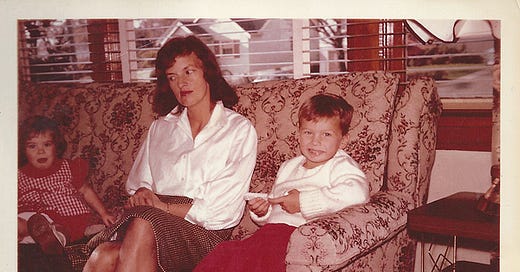




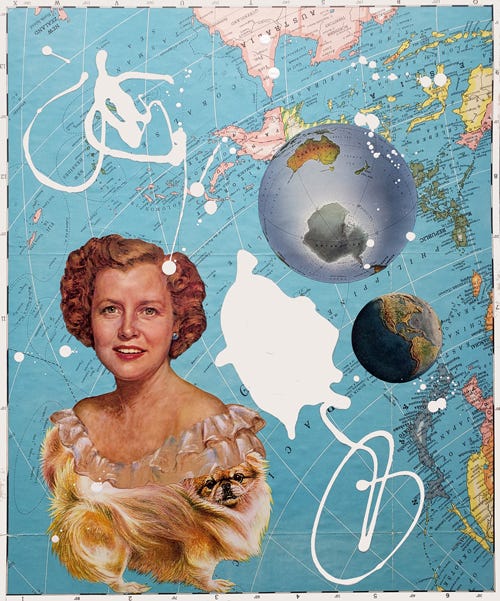
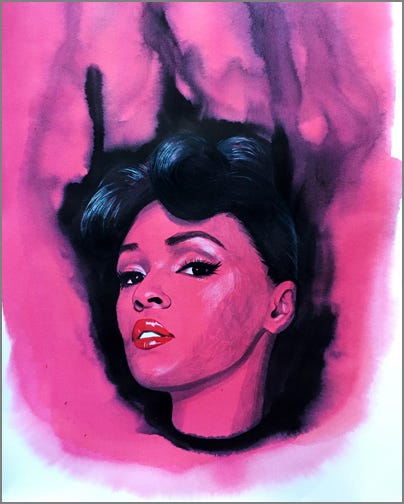
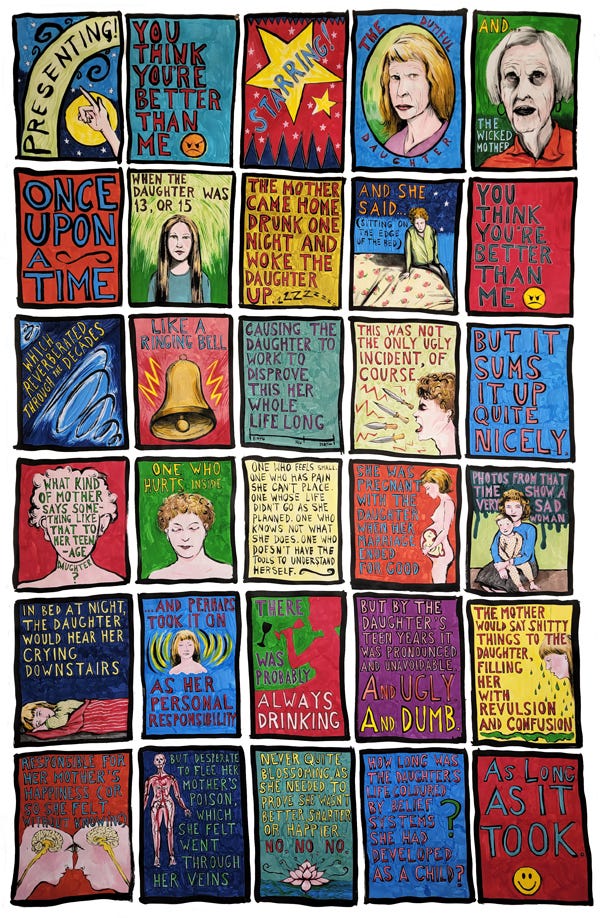
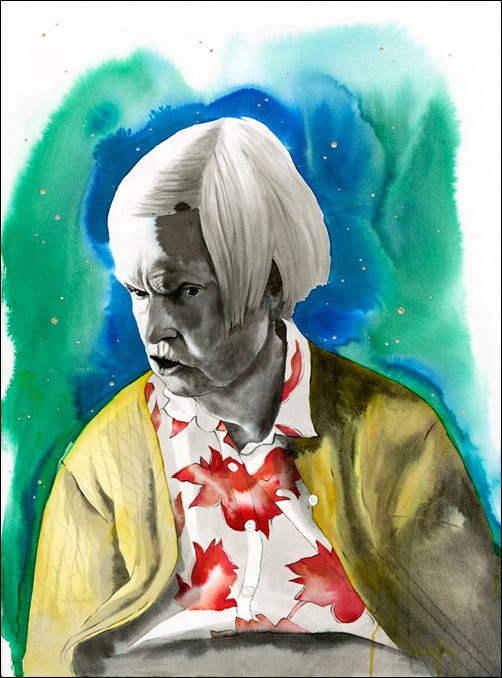




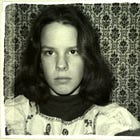
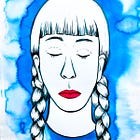
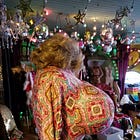

I figured I should come tell you what I read so far since I mentioned it with my note. I love all of the images of your art about your mom’s dementia as we have discussed because I am going through it with my mom right now. I don’t make art about humans, but I do love the idea of creating some work about mom and watching her die by inches. Anyway, keep writing and painting and never give up. I’m off to read some more. Yay!
What a great edition BA! Alice's questions really got to the heart of the project! Loved the interview with Lynda Berry and Tom Powers!